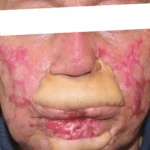You’ll learn safe handling practices, proper cooking methods, and when to use pasteurized eggs to avoid risks. Whether you’re a home cook or health-conscious parent, this resource helps you protect your family from foodborne illness while still enjoying eggs as a nutritious part of your diet.
Introduction to Can Salmonella Be Caused by Eggs:
Yes, salmonella can be caused by eggs, especially if they are raw, undercooked, or improperly handled. Eggs are one of the most common food sources linked to salmonella infections, which can lead to food poisoning. The bacteria may be present inside the egg or on the shell, making safe handling and cooking very important.
Many people enjoy eggs daily in breakfast dishes, baked goods, or homemade sauces. But what many don’t realize is that eggs can sometimes carry harmful bacteria like salmonella. That’s why understanding the risks, safe cooking practices, and storage methods is essential to protect your family’s health.
Eggs are a powerhouse of nutrition, but like other animal products, they come with food safety concerns. In this guide, I’ll walk you through how salmonella relates to eggs, signs of contamination, prevention tips, and expert-backed safety advice.
No, properly cooked eggs kill salmonella. The risk is mainly from raw or undercooked eggs.
- Advertisement -
What Is Salmonella and How Does It Relate to Eggs:
Salmonella is a type of bacteria that causes foodborne illness, commonly referred to as salmonellosis. According to the CDC and FDA, millions of salmonella infections occur worldwide each year, and eggs are often one of the culprits.
The reason eggs can carry salmonella is because the bacteria can contaminate the shell during the laying process or even be present inside the egg before it is laid. This means that even eggs that look perfectly clean and fresh may still carry a risk if eaten raw or undercooked.

How Do Eggs Become Contaminated with Salmonella:
This is why eggs that look clean and uncracked can still contain bacteria. It’s also why proper cooking is so important. Studies have shown that refrigeration slows down bacterial growth, but only cooking to the right temperature fully kills salmonella.
Egg contamination happens in two main ways.
- On the shell – When a hen lays an egg, salmonella from the environment or the hen’s droppings can contaminate the outer shell.
- Inside the egg – If the hen itself is infected with salmonella, the bacteria can be transmitted directly into the egg before the shell is formed.
What Are the Symptoms of Salmonella from Eggs:
If someone eats contaminated eggs, symptoms of salmonella poisoning usually appear within 6 to 72 hours. Most healthy individuals recover within a week without treatment. However, children, the elderly, and people with weak immune systems can face more serious complications, which sometimes require hospitalization.
- Nausea and vomiting
- Diarrhea (sometimes severe)
- Abdominal cramps
- Fever and chills
How to Prevent Salmonella from Eggs:
The good news is that salmonella from eggs can be prevented with simple, everyday food safety practices. By following these steps, you can significantly reduce your risk of salmonella infection while still enjoying eggs safely.
- Cook eggs thoroughly until both the yolk and white are firm.
- Avoid raw eggs in recipes like homemade mayonnaise, Caesar dressing, or raw cookie dough.
- Store eggs in the refrigerator at 40°F (4°C) or below.
- Wash hands, utensils, and surfaces after handling raw eggs.
- Buy pasteurized eggs if you need to use raw or lightly cooked eggs in recipes.
FAQ
Most frequent questions and answers
No, properly cooked eggs kill salmonella. The risk is mainly from raw or undercooked eggs.
Not all eggs carry salmonella, but because the risk exists, it’s best to handle and cook them safely.
The risk is relatively low but still significant. Salmonella is one of the leading causes of foodborne illness linked to eggs.
Conclusion:
Eggs are a nutritious part of a balanced diet, and you don’t need to avoid them completely. In conclusion, the answer to “Can Salmonella be caused by eggs” is yes but with proper precautions, the risk is very manageable. By storing them correctly, cooking thoroughly, and avoiding raw consumption, you can safely enjoy eggs without fear of salmonella. Awareness and safe food handling are the key steps to keeping your meals healthy, delicious, and worry-free.








